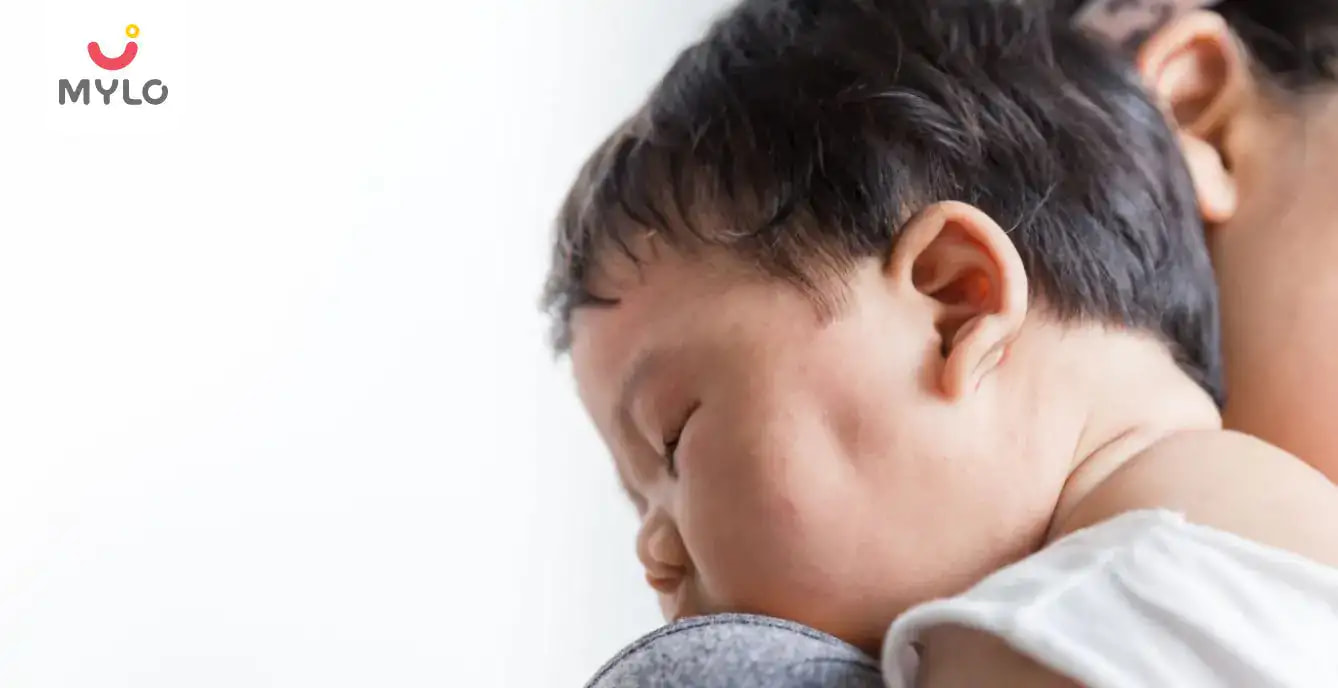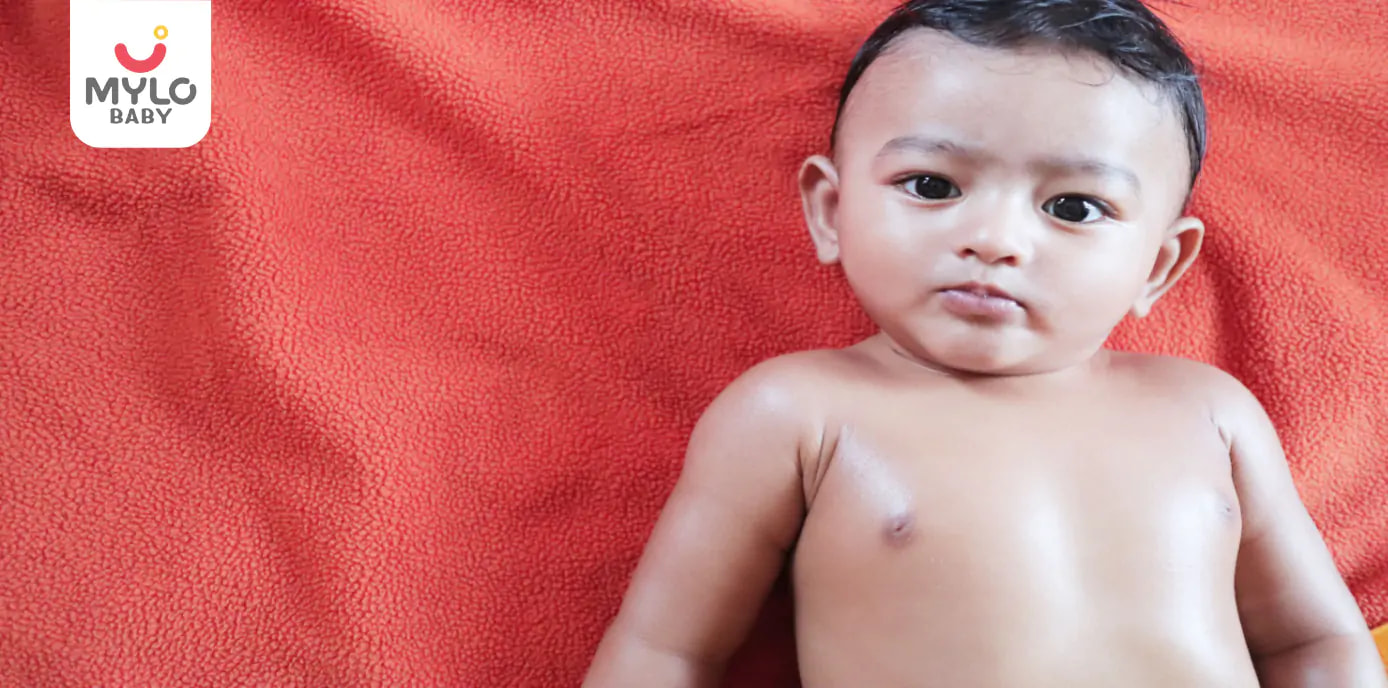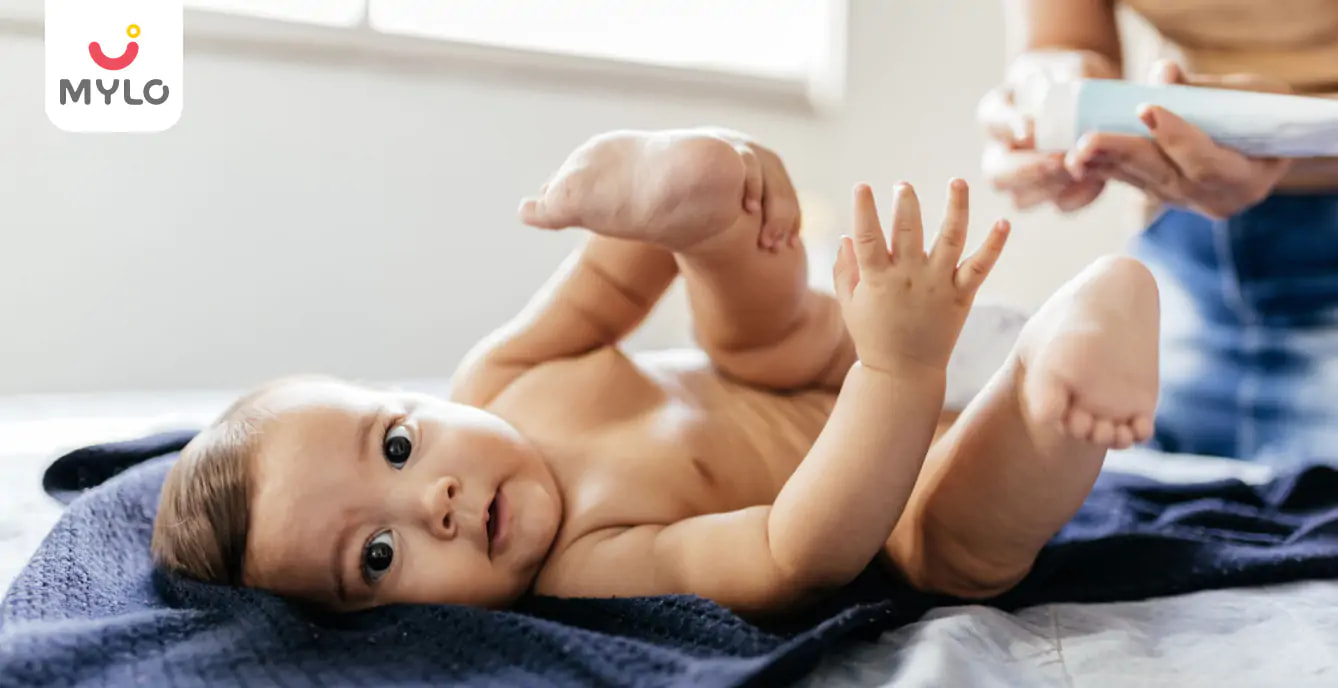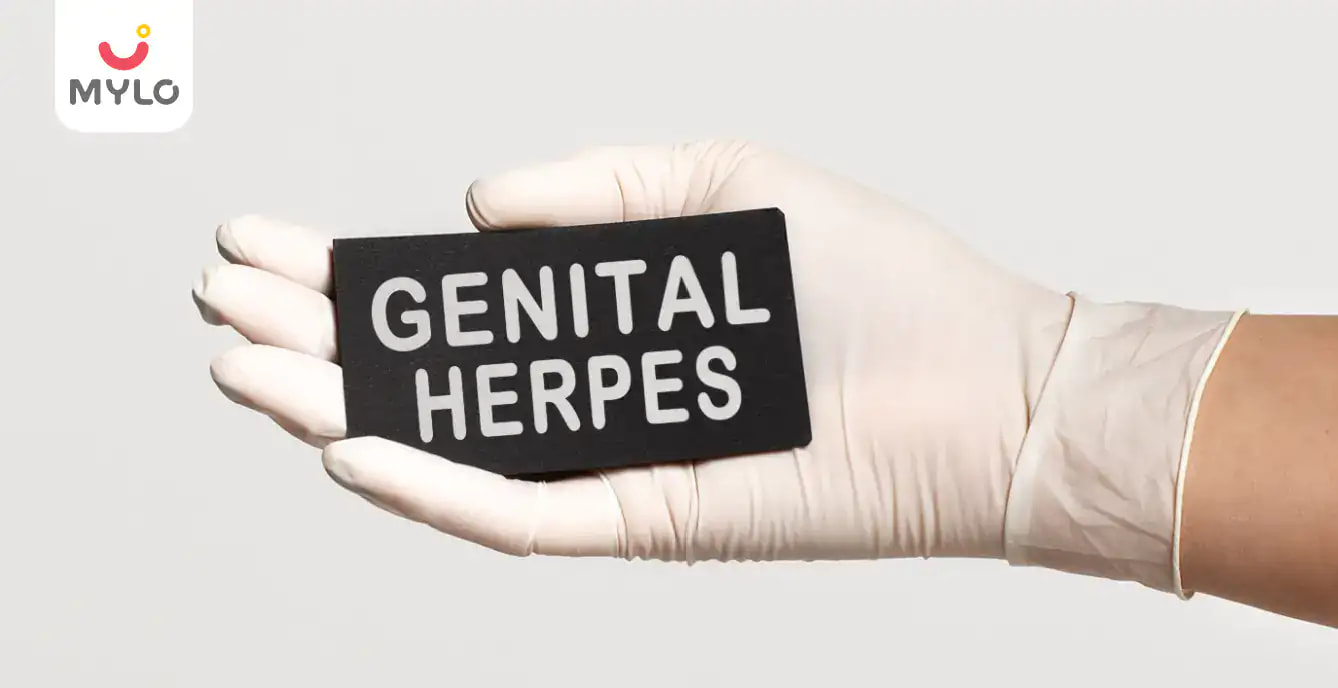Home

Illnesses & Infections

How to cure ringworm in toddlers
In this Article
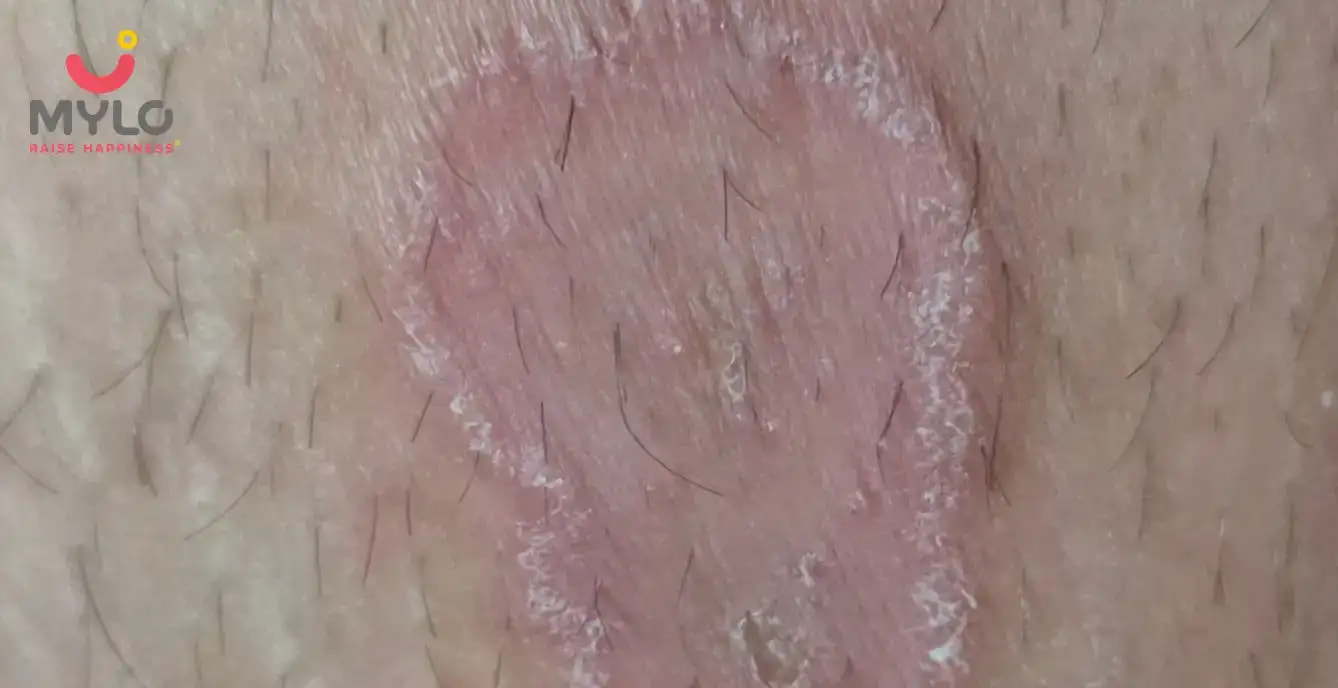
Illnesses & Infections
How to cure ringworm in toddlers
Updated on 29 January 2022
What is ringworm?
Ringworm is a contagious fungal infection of the skin that has nothing to do with worms. It's called ringworm because the infection appears as a rash in a ring or round shape.
It can be itchy, but it's not painful or dangerous. It's the same fungus that causes athlete's foot. It's common in children and usually affects only the body or scalp.
What does a ringworm rash look like?
If your baby has ringworm, she will have a rash of one or several red rings on her chest, stomach, thighs, or back. The rings will be crusty or scaly on the outside and smooth in the middle. They may also feel itchy. As the fungus grows, the rings get larger, ranging in size from a few millimetres to a few centimetres.
Ringworm can also affect your baby's scalp. It usually appears as dandruff or bald patches. It can be dry and crusty, or moist and filled with pus. It is easy to confuse ringworm with dandruff or cradle cap.
See a photo of ringworm in our rashes and skin conditions gallery.
How did my baby get ringworm?
The ringworm fungus would have entered your baby's body through broken skin, such as a cut or scratch, or a patch of eczema. Your baby probably got it from an infected person or pet, or from touching contaminated sheets, towels, toys, or clothes. Your baby could also have got it from infected soil if she was crawling around in the garden or park.
Scalp ringworm is much more likely to have been passed to your baby from another person, from sharing a hairbrush, towels, bed linen, or hat. Shared public facilities, such as swimming pools, public toilets, or changing room showers, are also potential sources of ringworm infection.
How should I treat my baby's ringworm?
For any unusual rash on your baby, start by talking with his doctor. She will decide the best treatment for you baby. This could include:
Antifungal cream
Your baby's ringworm should clear up if you treat it with an antifungal cream, the same type of cream used for athlete's foot. Look for a product with one per cent or two per cent of clotrimazole or miconazole. Ask your paediatrician for advice.
Put a small amount of the cream over and a little bit beyond the infected area twice a day. Carry on treating it for a further one week to two weeks once the rash has cleared. Remember to wash your hands thoroughly afterwards.
Some children are sensitive to these creams, so try using only a little bit of the cream first to see how your baby's skin reacts.
If a rash develops in response to the cream, take your baby to the doctor. Your doctor will suggest alternative creams.
Ringworm should get better with treatment in about four weeks. If your baby's ringworm carries on for longer than this, take her to the doctor.
If your baby has a stubborn case of ringworm, the doctor may prescribe something stronger than the over-the-counter cream. And in some rare cases (rarely), an oral medication is also necessary.
Medicated shampoo and oral antifungal
If your baby has ringworm on her scalp, this can be more difficult to treat using a cream. See your doctor, who will probably prescribe antifungal tablets and a medicated shampoo.
Your child might also develop an area of inflammation, called a kerion, in response to the fungus. It'll appear as a moist, swollen area on the scalp, with pustules (little pimple-like bumps). This will clear up when you treat your toddler's scalp for the ringworm.
It is also important to follow these hygiene measures to help remove the ringworm fungus from around your home:
- Gently wash and dry the areas of ringworm on your baby's body. Take care with the areas between the toes and skin folds. Wash your hands thoroughly afterwards.
- Wash your hands after applying antifungal cream or shampoo to your baby's skin.
- Dress your child appropriately for the weather so that he doesn't overheat and sweat too much.
- Don't let others (like siblings) share towels, hairbrushes, pillows, clothing, or similar items with your baby.
- Dress your baby in full-length, loose-fitting cotton clothes that cover her legs and arms. If she's walking, have her wear sandals at pool areas, in locker rooms and when she is playing in the garden or park.
- Keep your baby's fingernails short to prevent her scratching and spreading the infection to other parts of her body.
You may have heard that there are some herbal remedies for treating ringworm. However, it's best to consult your doctor before starting any other treatment for your baby.
Can ringworm cause any complications for my child?
Occasionally ringworm can spread to another part of your baby's body. If it appears on her scalp, there's a small possibility it could cause slight scarring or hair loss.
Ringworm can sometimes lead to a secondary infection by bacteria or another fungus. Your baby may need antibiotics if she develops another infection. Take your baby to the doctor if your baby develops other rashes or symptoms.
Can I do anything to make sure my baby doesn't get ringworm again?
It's hard to protect your baby from ringworm, but there are a few things you can do to keep it from spreading further:
- If other family members or anyone caring for your baby shows symptoms, make sure they get treated immediately.
- Check pets to make sure that they don't have any scaly, hairless patches. If they do, take them to the veterinarian for treatment. Animals can sometimes carry the fungus without showing any signs of it. In fact, it's a good idea to take your pet for a check-up if your baby keeps getting re-infected.
- Make sure everyone in your household follows good hand hygiene.
- If your baby has ringworm on her scalp, treat all family members with antifungal shampoo.
- Wash bedding, towels, and clothes in hot water. If you suspect any hairbrushes, combs or clothes may be infected, throw them away.
Should I keep my baby or toddler away from his daycare, playschool or crèche?
Generally speaking, you don’t need to keep her away from his usual activities. Ask your daycare provider what the centre’s policy is on children attending when they have ringworm. Once your baby has started treatment, it should be no problem, but until then, they may or may not want you to keep her at home.



Written by
Priyanka Verma
Priyanka is an experienced editor & content writer with great attention to detail. Mother to an 11-year-old, she's a ski
Read MoreGet baby's diet chart, and growth tips

Related Articles
RECENTLY PUBLISHED ARTICLES
our most recent articles

General Father
Tips for New Dads to Make Friends with Other Fathers
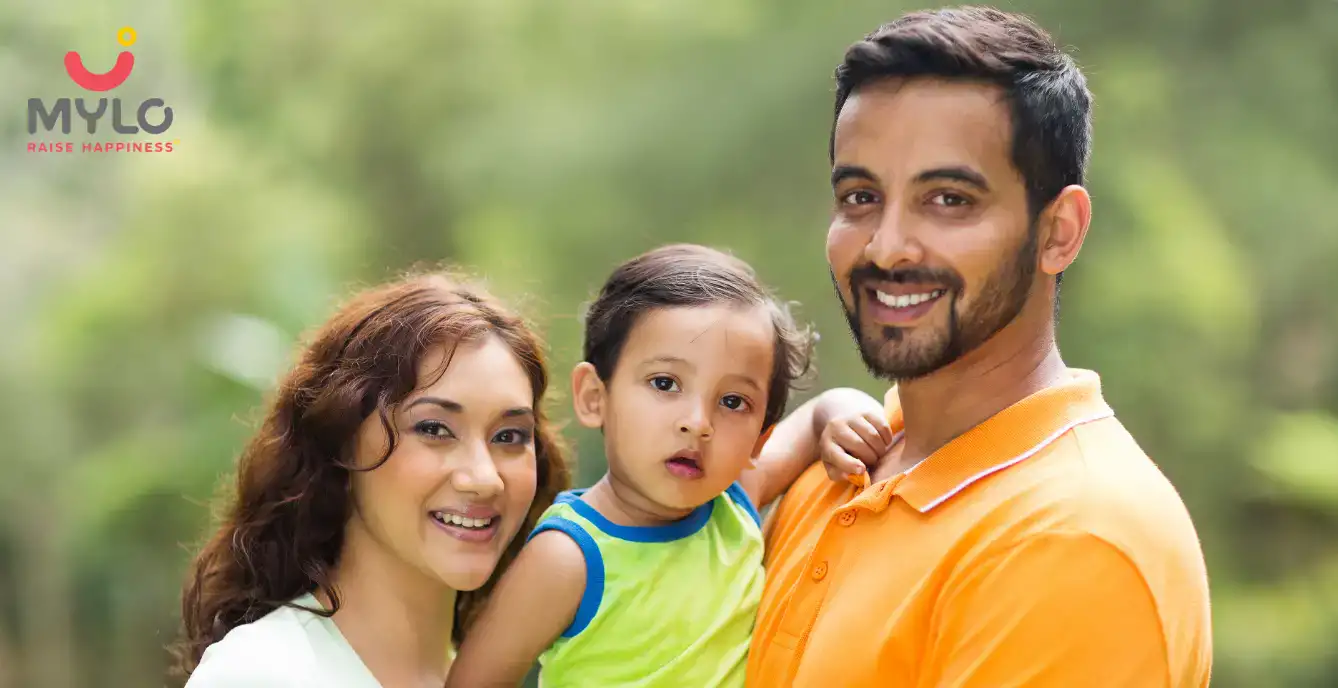
General Father
Are You a Millennial Parent? Find Out

General Father
How to Choose a Gynaecologist for Your Pregnant Wife?
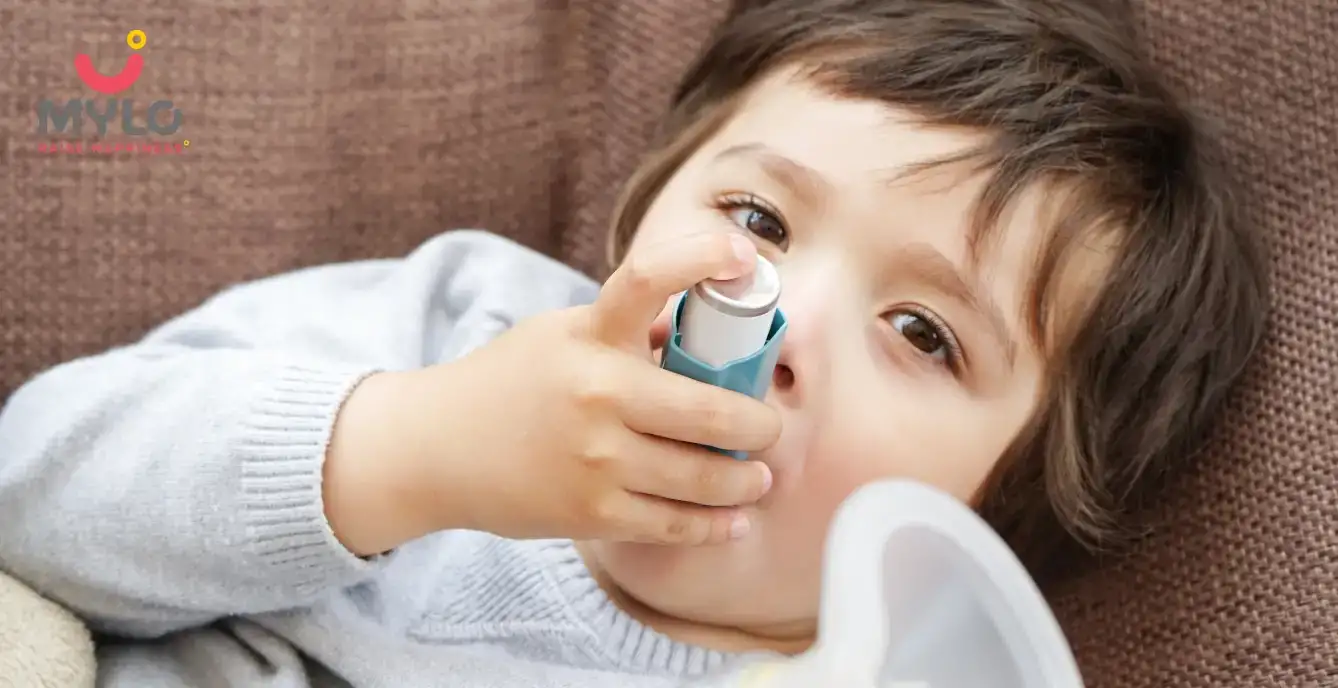
Illnesses & Infections
Wheezing in toddlers: How to treat?
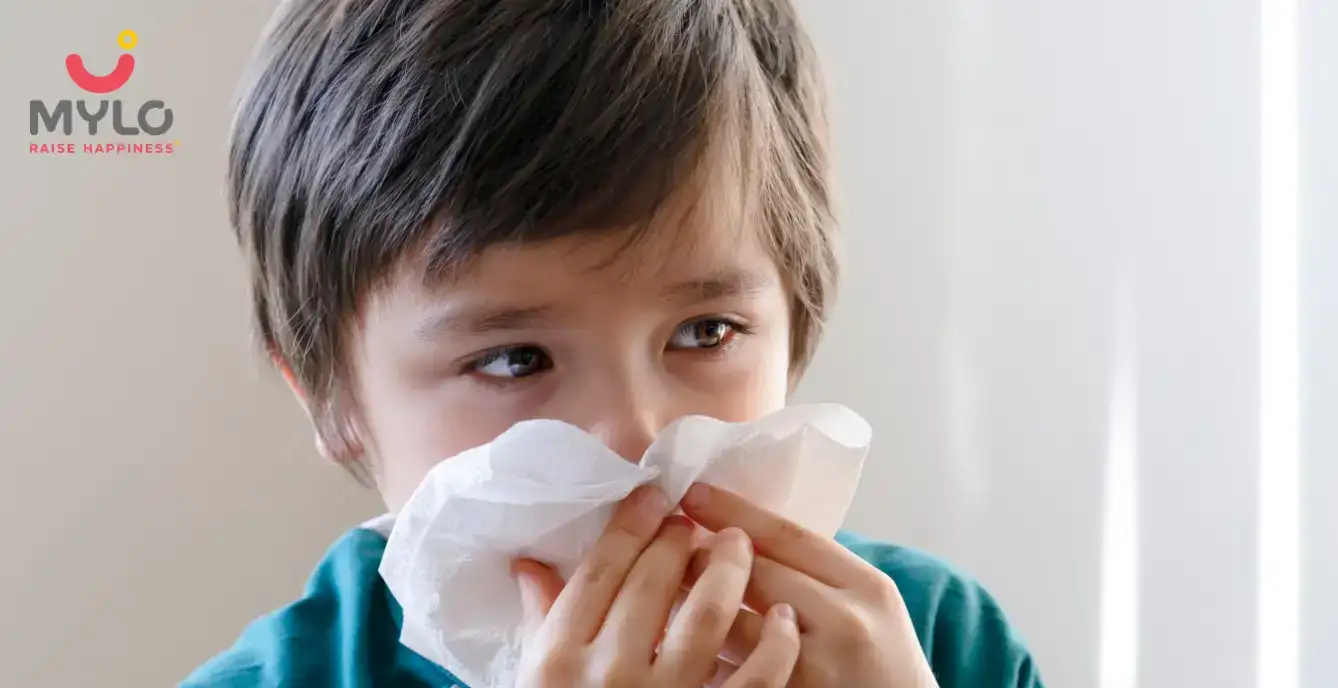
Cold & Cough
How can steam inhalation help my baby's blocked nose?
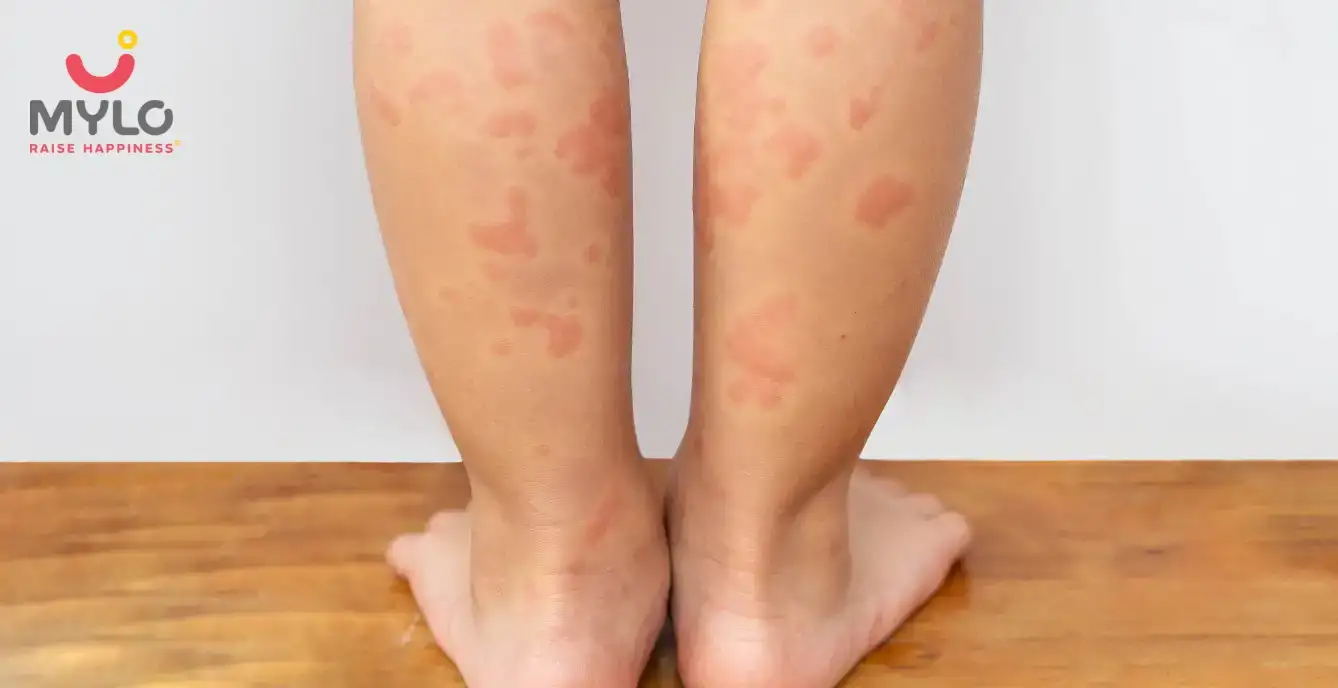
Allergies
Treatment for Hives in toddlers
- Coronavirus, pregnancy, and New Year travel, how to balance all three at the same time?
- 12 tips for easing your 'parent-noia'
- How to pack your wife's hospital bag
- How to Travel with a Baby for a New Father
- Looking for a perfect name for your baby? Here's how you can find it
- 14 Month Old Baby Food Chart/Feeding Schedule – Week 2
- How to treat head lice & nits in babies
- Educating Your toddler about Covid
- Top 7 Secrets of your baby's behavior
- Top Gadgets for Every New Parent
- New Mom Diet Plan – Month 11 Week 43
- 13 Month Old Baby Food Chart/Feeding Schedule – Week 3
- 13 Month Old Baby Food Chart/Feeding Schedule – Week 1
- Baby Diet Plan - Month 13


AWARDS AND RECOGNITION

Mylo wins Forbes D2C Disruptor award

Mylo wins The Economic Times Promising Brands 2022
AS SEEN IN

- Mylo Care: Effective and science-backed personal care and wellness solutions for a joyful you.
- Mylo Baby: Science-backed, gentle and effective personal care & hygiene range for your little one.
- Mylo Community: Trusted and empathetic community of 10mn+ parents and experts.
Product Categories
baby carrier | baby soap | baby wipes | stretch marks cream | baby cream | baby shampoo | baby massage oil | baby hair oil | stretch marks oil | baby body wash | baby powder | baby lotion | diaper rash cream | newborn diapers | teether | baby kajal | baby diapers | cloth diapers |



